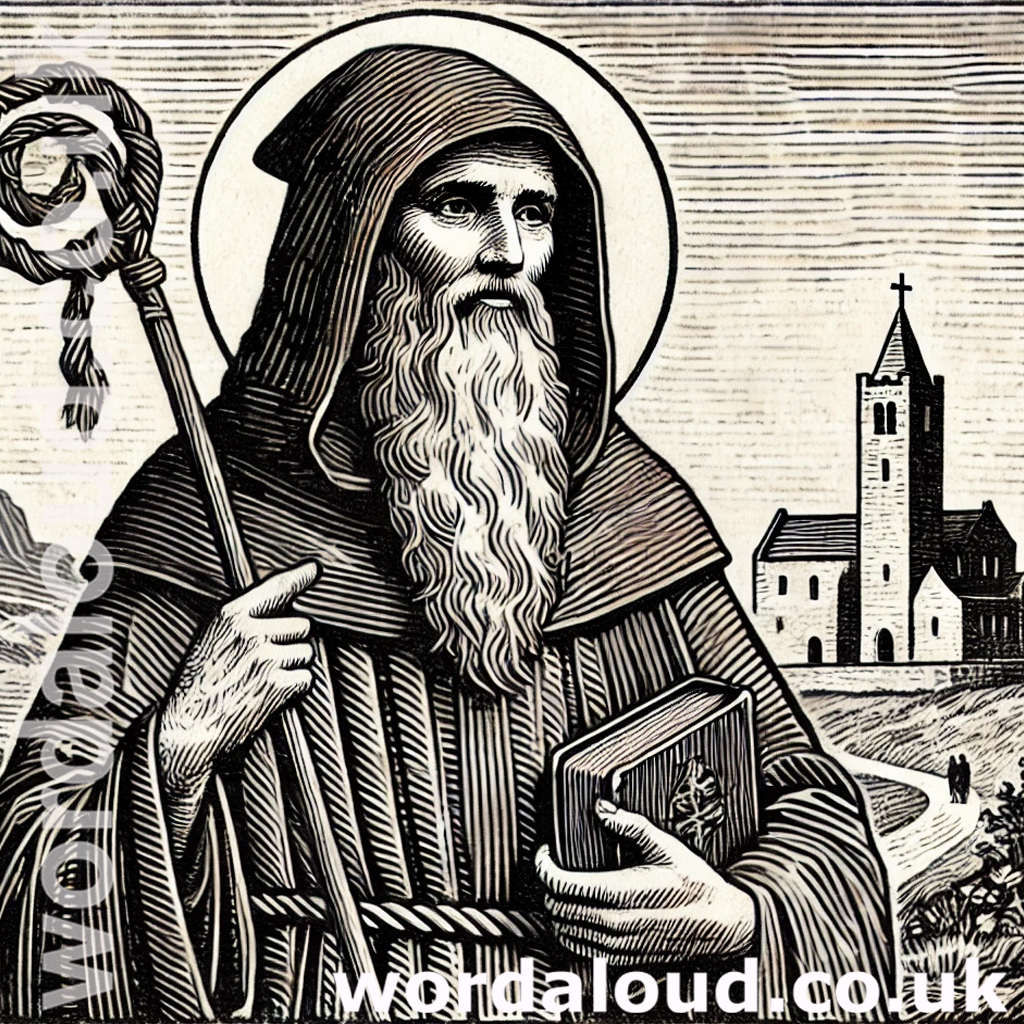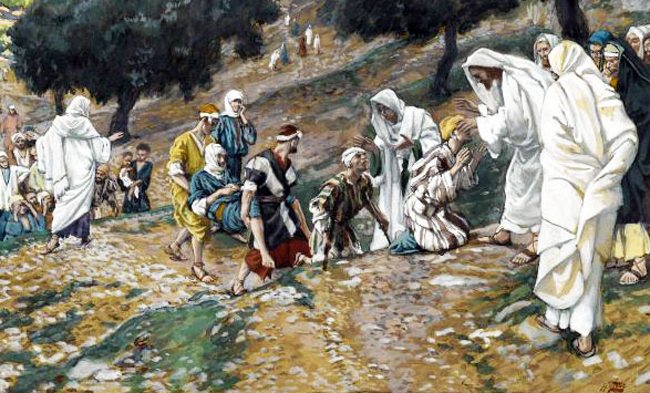Office Of Readings | Monday, Lent Week 5 | From The Commentary On The Penitential Psalms By Saint John Fisher, Bishop And Martyr | Jesus Christ Our Advocate With The Father
‘Even if someone has sinned, we have an advocate with the father.’
Saint John Fisher, Bishop And Martyr | Context And Theological Depth
Saint John Fisher (1469–1535), a scholar, bishop and martyr during the English Reformation, is remembered for his unshakable fidelity to the Catholic Church and the sacramental life of the Church. His Commentary on the Penitential Psalms, written before his imprisonment, is rich in theological clarity and pastoral care. This particular reflection—focused on the priesthood, atonement, and the mercy of Christ—is a deeply Lenten meditation, inviting the sinner to repentance and trust in the sufficiency of Christ’s sacrifice.
Fisher was executed by King Henry VIII for refusing to recognize the king as head of the Church in England. His witness makes his emphasis on fidelity, sacrifice, and penitence all the more powerful. His work emerges not from abstract reflection but from a soul formed by prayer, study, and suffering.
Christ As Priest And Sacrifice
Saint John Fisher opens with the declaration:
‘Christ Jesus is our bishop, his most precious body is our sacrifice, which he offered upon a cross for the redemption of all the world.’
This identification of Christ as both high priest and victim reflects the teaching of the Letter to the Hebrews (especially chapters 7–10), which Fisher knew intimately. Christ is not merely one who offers something external to himself; he offers himself. His body is the true sacrifice; his priesthood, eternal.
Unlike the priests of the Old Covenant, Christ does not enter into a man-made temple but into heaven itself. Fisher notes:
‘The temple wherein our bishop did sacrifice was not made by man’s hand… but… the face of all the world, which is the temple made only by the hand of God.’
Fisher stresses that the whole cosmos becomes the sanctuary in which Christ’s sacrifice is offered. On Calvary, in full view of the world, he acts as both priest and victim.
From Earth To Heaven | A Sacrifice That Endures
The movement from Christ’s earthly Passion to his heavenly intercession is a central feature of the reading. After his resurrection, Christ, ‘clothed in immortality’, enters the sanctum sanctorum—the heavenly Holy of Holies—to present his blood before the Father. Fisher refers to the tradition that Christ shed his blood seven times (often understood to include Gethsemane, scourging, crowning with thorns, hands and feet nailed, and the piercing of the side). Each act of bloodshed becomes a channel of mercy.
This sacrificial act is not confined to the past but remains eternally efficacious:
‘This sacrifice shall continue… it is daily offered for our comfort, and every hour and moment for our most strong succour.’
Here Fisher anticipates the Catholic doctrine of the Eucharistic Sacrifice: that the sacrifice of Calvary is made present in every Mass. Though Christ dies only once, the grace and power of that sacrifice are ever active, ever accessible, particularly in the liturgy.
Repentance And Participation In Christ’s Sacrifice
Fisher is acutely aware of the human condition: we sin, we fall, we stray. But he insists that no sin, however serious, excludes a person from Christ’s intercession—provided there is sincere repentance:
‘Every contrite and true penitent person not willing to fall again… is partaker of this holy sacrifice.’
Repentance is not mere regret but a change of heart, a desire for holiness. Fisher is pastoral and precise. He does not minimize sin, but he magnifies grace. He urges the penitent to trust not in his own worthiness but in Christ’s advocacy.
This echoes 1 John 2:1–2, which Fisher cites directly:
‘If anyone does sin, we have an advocate with the Father, Jesus Christ the righteous. And he is the expiation for our sins.’
Fisher draws from this the assurance that Christ’s intercession continues: Christ pleads for sinners not with words only, but with his wounds, with the blood poured out on the cross and now presented to the Father in heaven.
A Theology Of Confidence And Hope
The tone of the reading is penitential but never despairing. For Fisher, the Lenten call to repentance is not simply a season of sorrow but an invitation to restoration. Sin wounds the soul, but Christ the high priest enters heaven on our behalf, not to accuse, but to heal.
There is no suggestion in Fisher’s writing of transactional or mechanical forgiveness. Mercy is not dispensed automatically; it is received by those who approach God with contrition and resolve. But the generosity of the offer is boundless. The sacrifice is available ‘every hour and moment,’ and Christ is always the advocate for the penitent.
Liturgical Resonance And Eucharistic Implication
Though not explicitly developed in this excerpt, Fisher’s words naturally point to the Mass. For Catholics, the altar is the meeting point of Calvary and heaven. The same sacrifice offered ‘in the face of all the world’ is re-presented in the Eucharist, and the faithful are invited to unite their prayers, their repentance, and their lives to that offering.
Thus, for the Lenten pilgrim, this reading is not abstract theology but a practical roadmap:
- Come to Christ the priest.
- Confess your sins with contrition.
- Trust in his advocacy.
- Participate in his sacrifice.
- Renew your purpose to live a virtuous life.
In this final stretch of Lent, Fisher’s message is clear:
Return to the high priest. The doors of mercy are open. The sacrifice is before the Father. Your advocate waits.

From The Commentary On The Penitential Psalms By Saint John Fisher, Bishop And Martyr
Christ Jesus is our bishop, his most precious body is our sacrifice, which he offered upon a cross for the redemption of all the world.
The blood shed for our redemption was not the blood of goats or calves as in the old law, it was the very blood most innocent of our saviour Jesus Christ.
The temple wherein our bishop did sacrifice was not made by man’s hand but only by the power of God, he shed his precious blood for our redemption in the face of all the world, which is the temple made only by the hand of God.
This temple has two divers parts, one is the earth whereon we inhabit, the other is not yet known to us mortal creatures.
First he did sacrifice in the earth when he suffered his passion. After, in a new clothing or garment, the vesture of immortality, and with his own precious blood he entered into sanctum sanctorum [the Holy of Holies] that is to say into heaven when he shewed his said most precious blood before the throne of his father which he shed for all sinners 7 times.
By this holy sacrifice almighty God must needs have pity and execute his mercy to all true penitents and this sacrifice shall continue not only year by year as the manner was of Jews, but also it is daily offered for our comfort, and every hour and moment for our most strong succour, wherefore saint Paul says Having obtained eternal redemption.
By it we are redeemed for ever. Every contrite and true penitent person not willing to fall again but with a full purpose to continue in virtuous living is partaker of this holy sacrifice.
As saint John shews in his first epistle: My little children, I am writing these things to you so that you may not sin; but if anyone does sin, we have an advocate with the Father, Jesus Christ the righteous. And he is the expiation for our sins, and not for ours only but also for the sins of the whole world.








